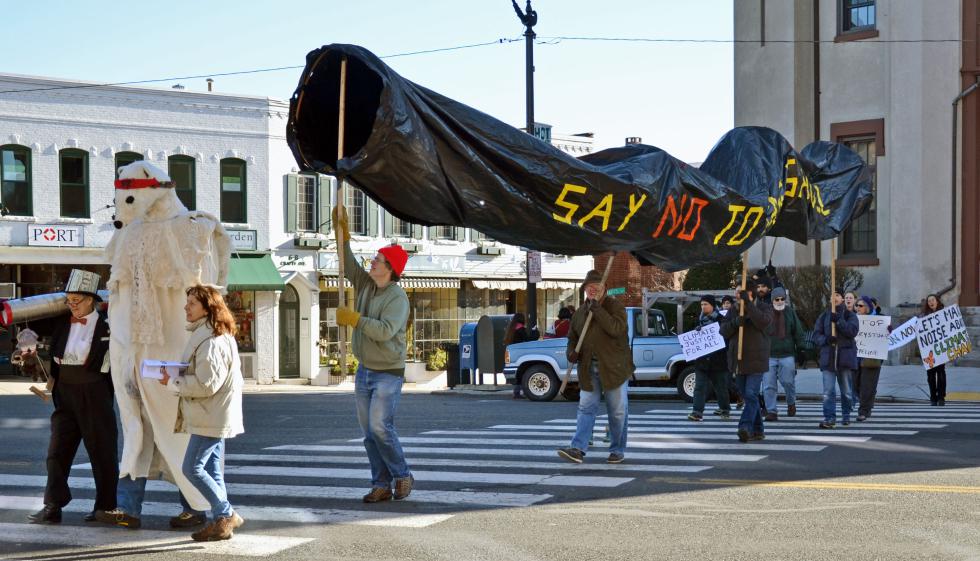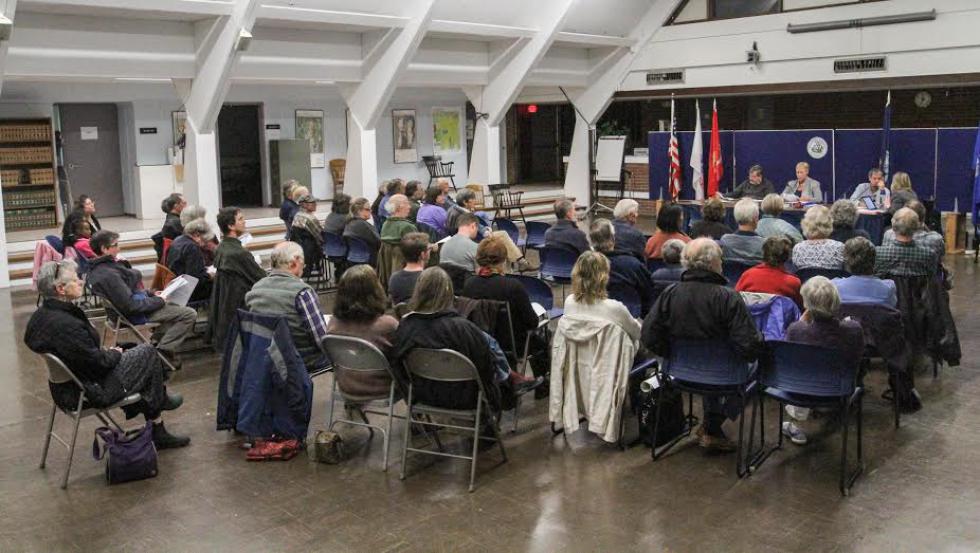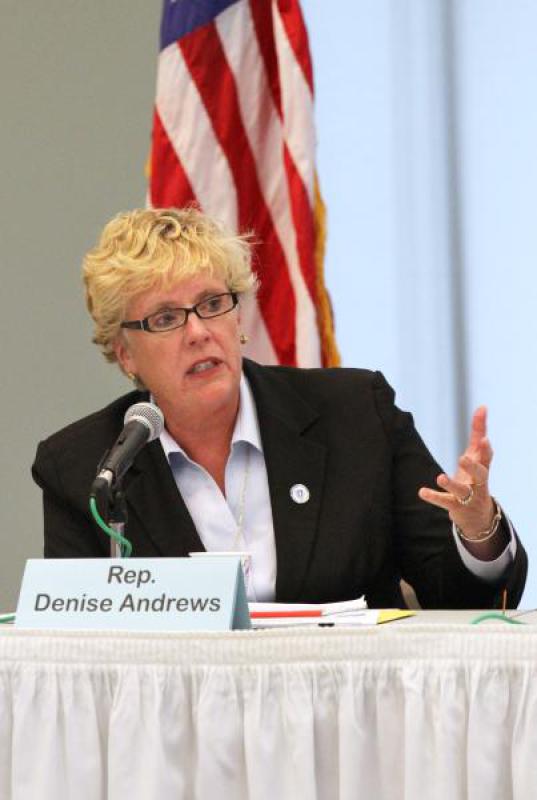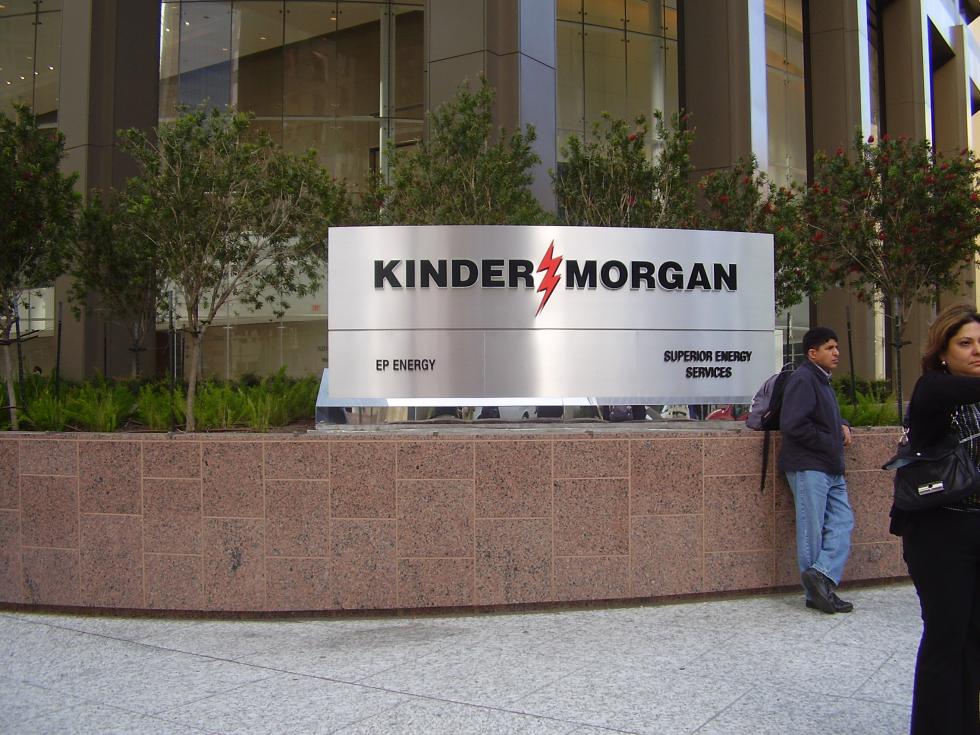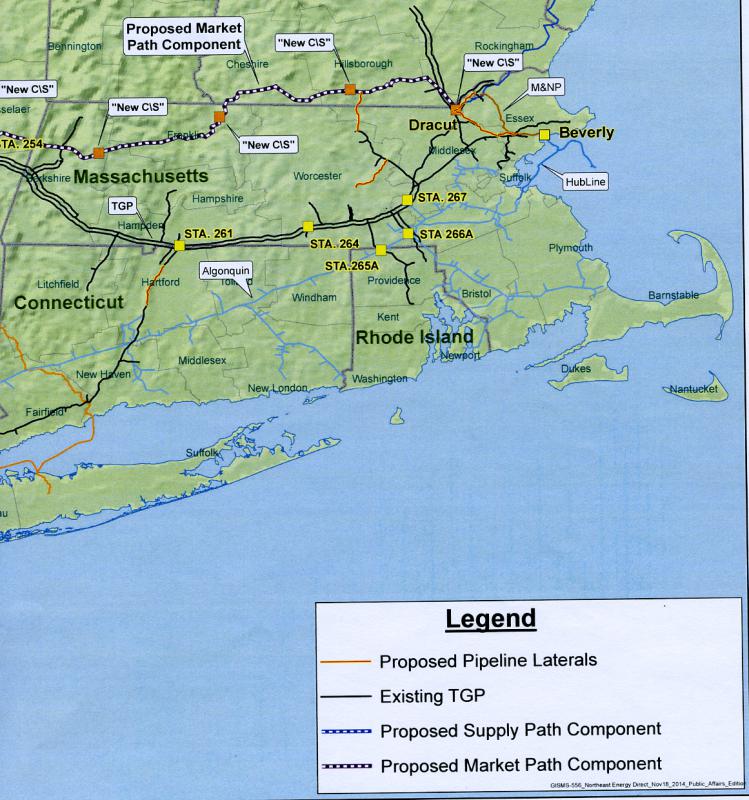With Kinder Morgan already into the federal pre-filing process to construct a 70-mile addition to the Tennessee Gas Pipeline, protest against the project has intensified.
The Tennessee Gas Pipeline is a 13,900-mile line that runs natural gas from Louisiana, Texas and the Gulf of Mexico to the Northeast. Many people against the project cite the potential negative environmental impact of construction, mishaps, and maintenance. Many are also against fracking, a controversial process whereby a mystery chemical cocktail is injected into the earth to extract oil or gas. The pipeline extension would likely transport fracked gas.
Kinder Morgan and area natural gas companies say current pipeline infrastructure isn’t large enough to meet the area’s growing energy demands. In December, for example, Berkshire Gas said it won’t be able to take on new clients because lines can’t bring up enough fuel.
August, 2012 – In a move to grow, Kinder Morgan forms a second company, Kinder Morgan Energy Partners, which has control of the planned $440 million expansion of the Tennessee Gas Pipeline. At the time, the Northeast Expansion Project, as it’s also known, is expected to wrap construction in November, 2013.
2013 – Kinder Morgan starts its information offensive, giving presentations about the project’s benefits and construction in communities where the pipeline would be constructed.
April, 2014 – Deerfield becomes the first Franklin County town to officially take a stand against the TGP when Town Meeting members instruct the Select Board to refuse Kinder Morgan access to town land.
May, 2014 – Residents of Plainfield, Cummington, Worthington and Chesterfield pass non-binding resolutions to ban pipelines carrying fracked natural gas from their towns.
June, 2014 – Ashfield residents ban the pipeline and bar Kinder Morgan from using town-owned land.
July, 2014 – Kinder Morgan says Ashfield selectmen have no legal authority to deny the company or its contractors permission to survey town-owned roads as part of natural gas research. Upon checking with their attorney, town selectmen concede they cannot stop the pipeline.
• An estimated 400 to 500 people rally on Boston Common to stop the pipeline. Area State Representatives Stephen Kulik and Denise Andrews attend.
• Kinder Morgan announces an agreement with The Berkshire Gas Co. and National Grid to distribute natural gas from the proposed extension.
September, 2014 – An alternative $850 million pipeline through New England is proposed by Northeast Utilities and Spectra Energy Corp. The new plan would have pipeline traveling along existing line routes instead of breaking new ground like the Tennessee project.
• Kinder Morgan begins the pre-filing Federal Energy Regulatory Commission (FERC) process for pipeline construction.
October, 2014 – Deerfield’s Board of Health bans construction of the proposed pipeline in town calling the project an “unreasonable risk to the health and lives” of residents.
November, 2014 – Kinder Morgan fires back at Deerfield saying the decision to ban the pipeline is null because it is superseded by the federal Natural Gas Act, which grants FERC the authority to regulate interstate pipelines — not individual towns.
December, 2014 – The TGP preferred pipeline route shifts a bit from Franklin County and into southern New Hampshire to avoid restricted state-owned land. The company no longer plans to have the pipeline run through Orange, Warwick and towns east on its way to Dracut.
• The Franklin Land Trust and seven other area environmental organizations form the Northeast Energy Solutions coalition to oppose the pipeline.
January, 2015 – State Rep. Stephen Kulik files legislation that would ensure property owners whose land is taken by eminent domain during pipeline construction are compensated for any gas in the line that is sold overseas.
February, 2015 – Kinder Morgan has rescheduled its “open house” series of public meetings on the pipeline project. One such meeting is slated for Feb. 5, 6-8 p.m., at the Greenfield Community College dining commons.•

